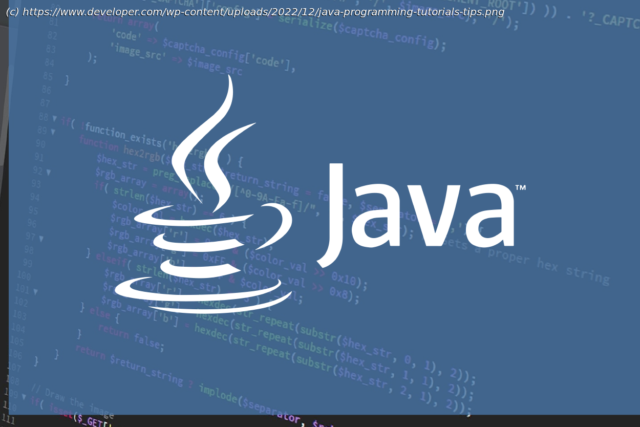Java is a popular programming language used in many applications. Learn the advantages & disadvantages of Java.
Developer.com content and product recommendations are editorially independent. We may make money when you click on links to our partners. Learn More.
Java is a versatile and popular programming language that has played a key role in software development for more than two decades. Its use cases range from developer large scale enterprise applications to the creation of Android mobile apps and desktop software. In this tutorial, we will explore the many advantages and disadvantages of programming with Java, shedding light on its strengths and weaknesses.
Jump to:
Overview of Java
Java Advantages
Java Disadvantages Overview of Java?
Java was originally created by James Gosling and a team of researchers at Sun Microsystems back in the mid 90s. Java was developed to be a programming language for consumer electronics, and it can still find purpose in that arena, as the popularity of embedded development and the Internet of Things (IoT) continue to grow. That being said, Java’s core philosophy of “Write Once, Run Anywhere” – or WORA – and its robust feature set inevitably made it appealing for virtually every type of software imaginable.
The language itself is considered a general purpose language with object-oriented features and commonly mislabeled as a true object-oriented programming (OOP) language. While it can certainly mimic the functionality provided by OOP, Java features primitive and non-primitive data types, making it not truly OOP, as everything in object-oriented languages is considered objects.
That being said, Java developers can make use of OOP concepts like polymorphism, classes, objects, inheritance, and encapsulation, making the code you create more readable, maintainable, and reusable – not to mention less prone to errors.What is the Java Virtual Machine (JVM)
Before we dive into Java’s advantages and disadvantages, it is worth mentioning one other important feature of Java – the Java Virtual Machine (JVM). The JVM is the tool that allows Java programs to run on any platform that has a compatible JVM implementation, which makes Java platform independent – a feature that contributed greatly to its early success.
You can learn more by reading our tutorial: What is the JVM?Advantages of Java
Below is a highlight of some the main advantages Java has to offer, including:
Platform independence
OOP features
Reliability
Library
Multithreading and Concurrency
Community
Use cases Platform Independence
As noted, Java’s WORA principle is a big highlight for the language, as Java programs can be compiled on a single platform and executed across any platform featuring the JVM, which constitutes most modern systems. This makes Java very compatible and affords it a high degree of portability.Object-Oriented Programming
Java’s OOP features make it an ideal language for modular design and reusable code. It promotes best coding practices for concepts such as encapsulation, inheritance, and polymorphism, which, in turn, leads to more maintainable and scalable code.
You can learn more about object-oriented programming as it pertains to Java in our tutorial: What is OOP in Java?Reliability
Java has been around for several decades now and is very well supported, benefiting from frequent updates to both its features and its security. Java features a robust syntax with features such as strong tying (requiring data types to be declared at creation), built-in exception handling to handle errors and code issues before they become a problem, and automatic memory management – also known as garbage collection.






